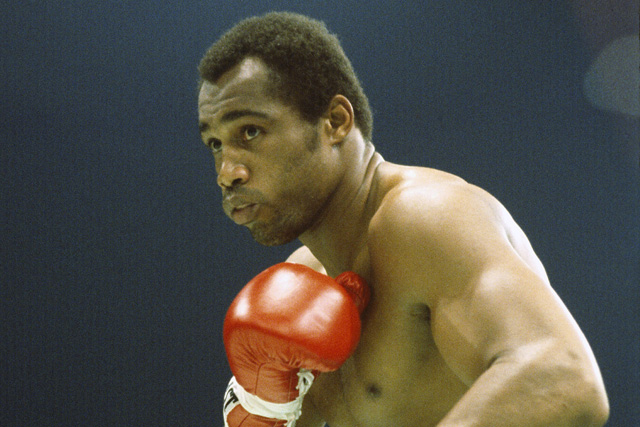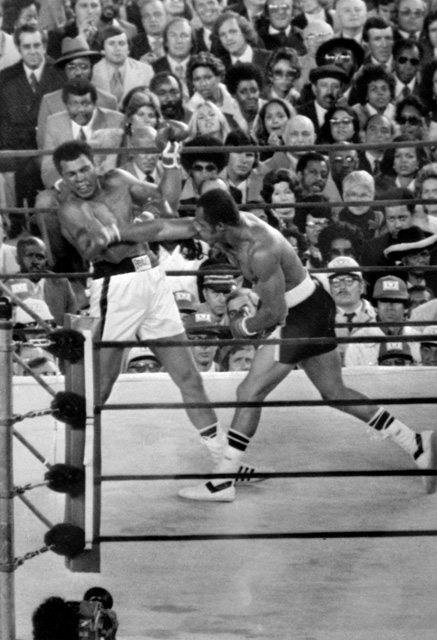Boxing’s Heavyweights of the 1970s: Ken Norton

Ken
Norton was one of boxing’s premier heavyweights. | Photo: Focus On
Sport / Getty
For my first piece on boxing’s top heavyweights of the 1970s, I am going to begin with a man who unfortunately was known more for the fights he lost than the fights he won -- a man who has a very strong case for actually being the best of that era.
Kenneth Howard Norton Sr. was an athletic prodigy, to say the least. In high school, he was an all-state football player, and due to his winning seven of eight track events, the “Ken Norton Rule” was created in Illinois to limit the number of events in which one athlete can compete. He was also accepted to college on a football scholarship. Norton is what we refer to as a late bloomer where boxing is concerned, given that he did not begin his journey in the Sweet Science as early as most elite-level competitors do. Norton started boxing as a Marine, amassed a 24-2 record and was awarded Golden Gloves titles due to his prowess. He is also known to this day as the best fighter to emerge from the U.S. Marine Corps boxing program. Many people believe Norton’s style was a product of Eddie Futch, but that is not the case. It remains unclear if his instructor in the Marines gave him his guard or if he initially adopted it because he liked it, but his “shell” beginning position and his style of movement was what kept him out of the Pan-Am Games; he was told his style was not international enough. This pushed Norton to turn professional and placed him under the watch of Futch, who refined his style greatly.
Advertisement
Part of this was to catch Ali’s jab and return jab at the same time. The jab catch, as used by Norton in this case, was sort of a hypnotic trick designed to get Ali jabbing more at Norton’s glove than his face; and it worked. The other part was to not make big moves at Ali until Norton himself was at the center of the ring. This would drive Ali back to the ropes quickly, and when he got him there, Norton was to attack the body with both hands to free up attacks to the head. Futch knew many fighters made the mistake of immediately going for Ali’s head, only to miss and eat counterpunches.
Norton lost his Sept. 10, 1973 rematch with Ali but not by much. In fact, there are people out there who would dispute the split decision in Ali’s favor. Futch attributed any lack of performance to Norton abandoning the strategy of how to get to Ali with his own strengths. In his words: “What happens in a rematch is, instead of following the prescribed pattern, a fighter thinks he can go out and do it any way he wants to. He’s going to have the same problems, but he’s going to do it his way regardless of what you tell him. In their second fight, Norton suddenly decided to fight Ali like Joe Frazier had fought him two years earlier. Norton bobbed and weaved. The trouble is, Norton didn’t know what to do from that position.” Yet he still managed to keep the fight close -- and win in the eyes of many. However, this was quickly forgotten as soon as Norton lost to George Foreman in a little more than a round on March 26, 1974, perhaps due to the shortness of the fight. It exposed what had plagued Norton in his first loss. There were times when everyone expected Norton to win, and he fell short of expectations. Yet when no one expected Norton to win, he would almost comically over-perform. In fact, his third bout with Ali on Sept. 28, 1976 was rated the fifth most disputed title fight decision in boxing history. This was basically the story of Norton’s career. Unless you possessed the ability to knock him out, it was nearly impossible to win an undisputed decision against him. A lot of people attributed this to his being mentally rattled by big punchers.
Plenty of facts speak to Norton’s quality. Ali never had an undisputed win against him and was all but broken in their first bout; Norton stopped almost everyone who was not on the same level, save for when he was beyond his prime and pitted against big punchers; and Norton dropped a disputed decision against a prime Larry Holmes on June 9, 1978, not too far from when he retired. However, as stated previously, he will be most vividly remembered for the loss to Foreman, and the boxing minds will also recall his losses to Earnie Shavers and Gerry Cooney and use them to place Norton beneath men to whom he was superior.
All it takes is viewing a couple Norton fights to realize the full scale of his ability and how he might deserve to be remembered as the greatest adversary of “The Greatest.”
Luis Monda is currently a full-time boxing trainer at Johnny Tocco's in Las Vegas, which is the oldest gym in Sin City. Luis has a deep knowledge of combat sports history, and has spent significant time researching lineages in boxing, specifically. He has been involved in the local-fight scene for nearly a decade: first as a potential competitor, then as the manager of Tocco's, and now as an instructor to boxers, kickboxers, and mixed martial arts fighters.
More




 Boxing Coverage on Sherdog.com
Boxing Coverage on Sherdog.com



